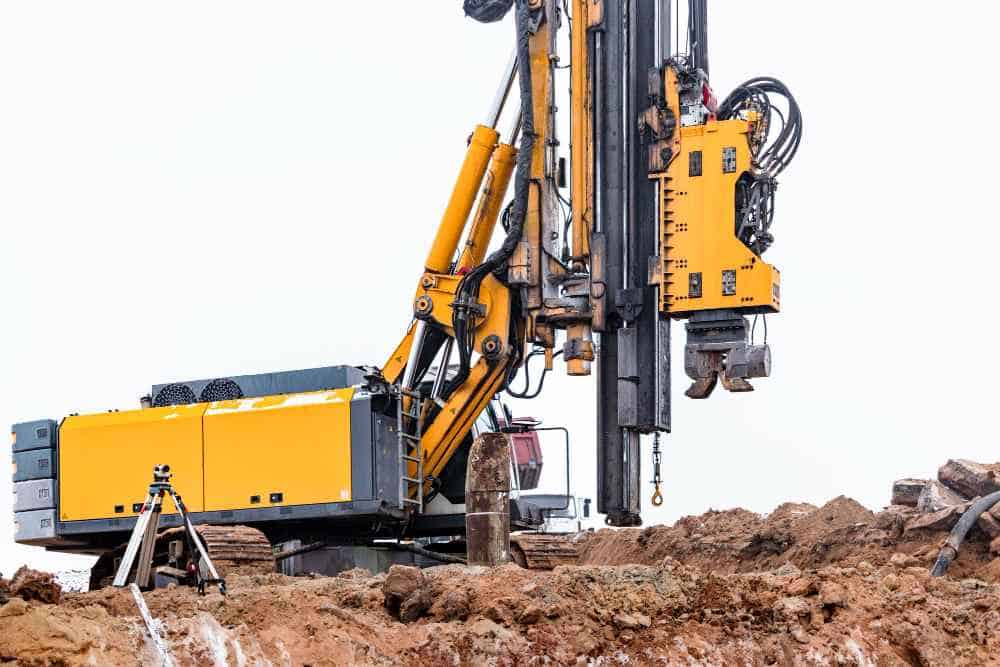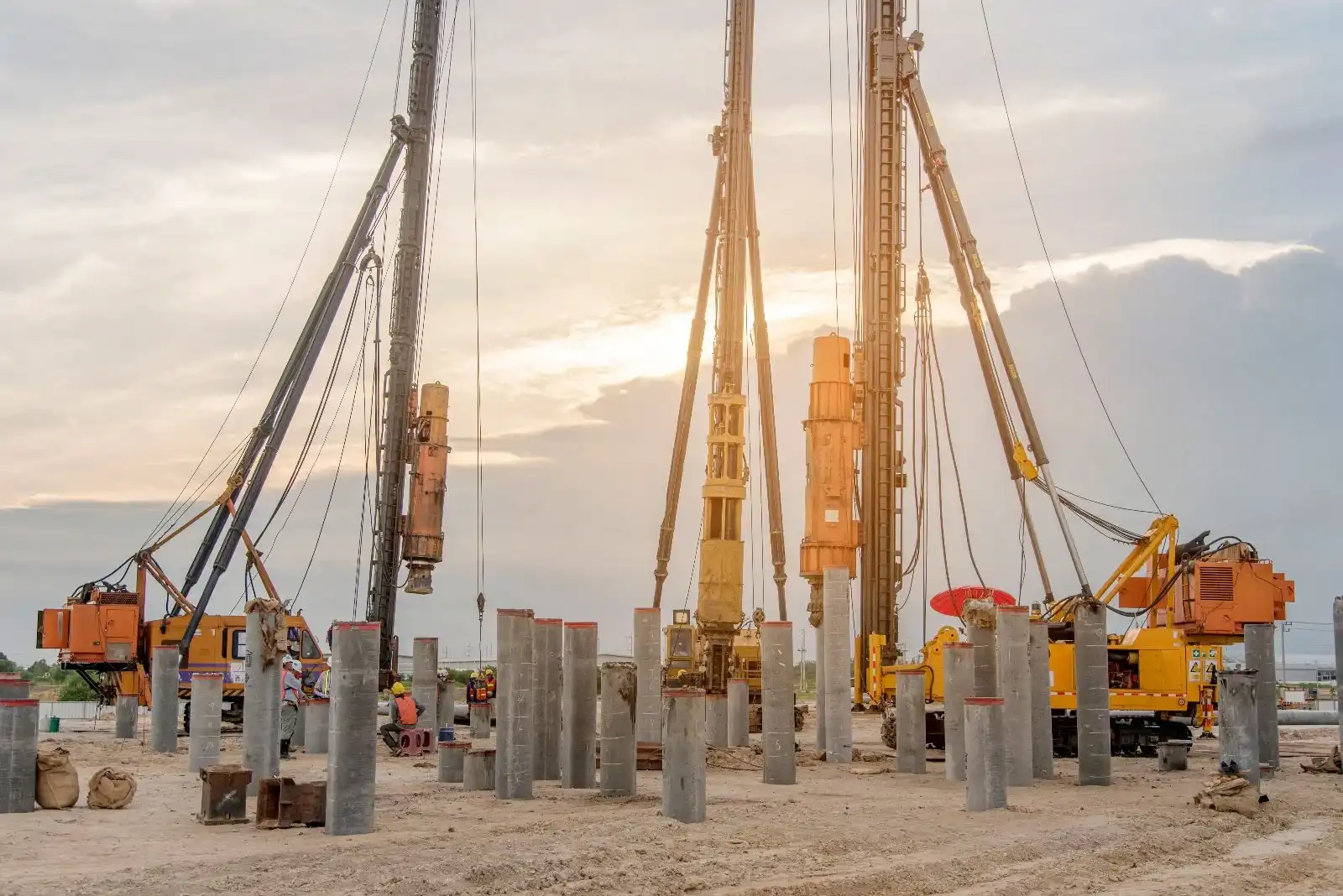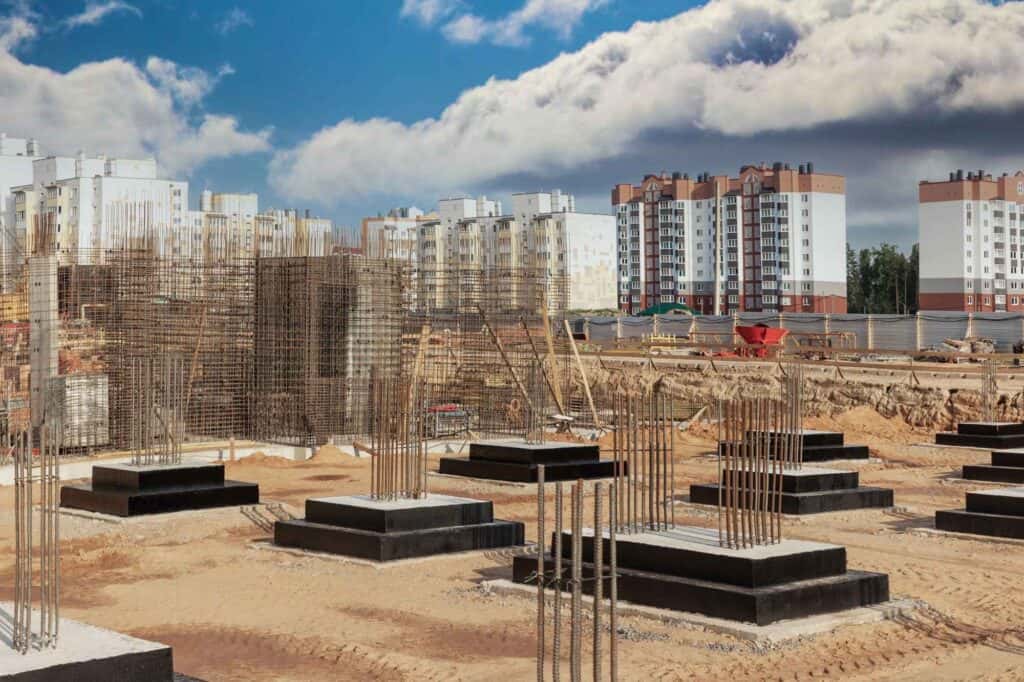Piling is the process of constructing or installing piles foundation to support heavy or asymmetric structures. They are often constructed by filling reinforced concrete in temporary or permanent steel castings. Piling is required when soil is not strong enough to support heavy lateral and vertical loads of the building. It provides structural support to the buildings by transferring loads to the ground.
Before you opt for piling, you must know its types and their costs to make informed decisions. In this post, we will guide you about the cost of different types of piling, but first, we will go through the factors that can impact the cost.
Table of Contents
ToggleFactors Affecting the Cost of Piling
To unveil the piling cost, you must understand the factors affecting it. Numerous factors can influence the piling cost, including:
Soil Conditions
Soil conditions at the project site greatly influence the piling cost. Highly challenging soil conditions require particular practices for piling installation. It also slows down the process leading to an increased cost. Geotechnical tests are performed to assess soil conditions. You have to pay £600 for the desktop and £1500 for the basic geotechnical test. VAT (value-added tax) is also applied to these tests.
Size of the Foundation
Foundation size significantly impacts the cost determination for piling. More extensive foundations need many piles to evenly distribute the loads and maximise strength. It ultimately leads to an increase in price as you have to spend more on piles.
Types of Piling
There are different types of piling, including mini piling, contiguous piling, sheet piling, screw piling, rotatory piling, etc. You have to select the appropriate type based on your project’s requirements. The cost varies from type to type as each involves different processes and labour. For instance, bored piling costs £200 to £400 per linear metre and sheet piling is around £150 to £200 per metre.
Depth of Piles
The depth of the pile depends upon the type of building; for example, skyscrapers need highly durable and stronger foundations, so piles are bored or driven into the ground at deeper depths. On the other hand, piles for your home may not even be driven to half of this depth. The depth of piles influences the cost, as boring them deeper requires heavy machinery and more time.
Site Accessibility
Accessibility may vary for different projects. Some sites are hard to access and require special treatments or equipment for piling, potentially increasing the cost.

Cost of Different Piling Types
Piling is available in different types, including sheet, driven, screw and mini piling. The cost of each type varies according to specific installation processes and machinery required for every type. Let’s explore these types and their cost.
Cost of Bored Piling
This type of piling is suitable for construction work on loose grounds, especially in cities where buildings are close to each other. A specific drilling machine called a rig is used to install this piles type. It has specialised drilling tools, buckets, and auger to remove soil when drilling through the ground to reach the desired depth.
The average cost of bored piling is around £200 to £400 per linear metre. It may vary based on the piling company you hire, the soil condition, and other factors.
Cost of Driven Piling
This piling type is highly suitable for soil with high water table and contaminants. The installation involves hammering or driving the piles in the ground using vibrations. Driven piles can be cast in place using steel cases and can be prepared off-site.
The cost of driven piles may range between £150 to £300. However, it’s a rough estimation and you may also have to pay additional charges.
Cost of Screw Piling
It includes hollow steel piles with one or more helices at one end. These piles are then screwed into the ground just like a screw in the wood. An installation plant is required to screw these piles. Handheld machines are also included in this installation process. Sometimes, only a single machine can do the whole job.
The price for screw piling is around £100 to £300 based on the condition of the soil, machinery used for installation and depth of pilling.
Cost of Sheet Piling
Sheet pilling is not often used for small or residential construction projects. It is widely used in the foundations of commercial buildings to support excavation. A series of interconnected sheets are driven into the soil to support the ground.
The sheet piling cost is usually low when you opt for temporary support, as the sheets can be removed once the groundwork is done and used at other sites. The average cost for steel sheet piling is around £150 to £200 per metre and £100 per metre for plastic or vinyl sheets. However, plastic sheets are not as strong as steel ones.
Cost of Mini Piling
Mini or micro piling differs from other types due to its small size and installation process. Mini piles offer numerous benefits, including access to restricted areas, reduced vibrations, and easy installation. These are often used to support home extensions and already existing structures.
Mini piling is one of the most affordable pilling choices, as the installation is quick and doesn’t require heavy machinery. The average cost for mini piling is around £50 to £100, based on the complexity of the project and the company you hire.

Average Cumulative Piling Cost
On average, the piling may cost you somewhere around £300 per square metre. However, keep in mind that this cost estimate tends to vary depending on several factors that we have discussed in previous sections. This estimated unit value means that if you are building a 3m by 7m extension to your house, you may be looking at somewhere around £4500- £8000.
Moreover, mobilisation and set up costs can increase your budget as well, depending upon the factors like the scale of the project and the machinery required. You may also need to acquire geotechnical report which can cost you £600+VAT for a desktop report, if your local council can provide you with the information. Otherwise, you will have to pay around £1500 for a basic geotechnical investigation.
Conclusion
The cost for each pilling type varies as different installation processes and machinery are required for each type. Each type has its benefits and can be used for specific projects only. The costs above are estimated and vary based on project size, complexity, and depth. You can request a quote from your piling company for a more precise cost estimation.



